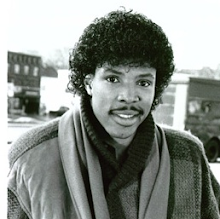The dangers of idealizing a place include the overesteeming of men
and the exoticizing of their attributes.
That’s when you catch
yourself humming the said tune, smack your forehead and rue the day you stepped out
of the house.
* * *
It
was an exhilarating time to be in Tbilisi. Young researchers, mainly from the
United States and Europe, older practitioners and inquiring minds
from the world over had flocked to the city. Change of every kind abounded, with academic
niches just waiting to be carved out and political glory there for the
taking.
Though
I had had trouble finding my place, I was eager to learn from and praise the
higher-ranking members of the growing expat community.
Then
came a singular stroke of luck. An enlightened friend, himself an entrenched
expatriate, called to say that he was throwing a party that very night. He
insisted on my coming and mentioned that all
of Tbilisi’s renowned rays of light were due to attend. And even the Big Yin would
be there.
Now, my
main interest in the country was originally the Georgian tongue. The Big Yin, said to be from Iowa or Indiana,
speaks it impeccably. Georgians, so I had been told, often could not detect even the
slightest hint of foreignness in his speech. The long
and the short of his story goes that when he was sixteen he caught a glimpse of
the Georgian alphabet in a book, proceeded to pick up Aronson’s Georgian: A Reading Grammar and never
looked back.
The
party was in full swing as I geared up for the approach. The flat smelled of hand-rolled
cigarette smoke and unwashed travelers. Beer, vodka, wine and homemade
moonshine were doled out plentifully and kept spirits high.
The
Big Yin — as sincerely gracious, let it be said, as he is wise — was soon
indulging me as I plied him with questions he must have become sick of
answering over the years. He even took an interest in my occupation and study:
With whom was I taking classes? Did I know what an affricate was?
Star-struck,
at length I gushed: “Man! I’d give up all my knowledge of French to be able to
speak Georgian like you.”
He
stopped me there, ears suddenly a-pricked: “Really? You speak French?”
“Uh,
yeah,” I said, momentarily nonplussed. “I guess it’s cool and all. . . . But
not as cool as your Georgian, right? Right?”
His
interest in me understandably came to an abrupt halt: the alcohol had muddled
his wits and my sycophancy succeeded in killing the flow any further
conversation might take. He found a way out in the form of a bespectacled, supercilious
party-goer — all red cheeks and crooked teeth — who had unmistakably been in
desperate need of pseudo-fatherly approval for some time. Intellectual one-upmanship
ensued.
Swishing
warm beer around in my mouth, I, too, looked for a dignified way out while rocking
myself on my feet, trying to balance imperceptibly: first on my heels, then on
the toes. Looking around the room I heard the foreign folk cackle complacently.
I suddenly no longer wanted anyone to approve of me nor did I see anyone else
to praise.
A few months after the shindig
I heard that the Big Yin was toying with a move to Abkhazia. Admittedly I would
then be hard-pressed not to overesteem him yet again. But I’ve recently left
Tbilisi and carry a lingering antipathy for it, as if it were a hit song played
to death on the radio and in every store across the land.
* * *
Select
Enlightenment:
H. Aronson, Georgian:
A Reading Grammar (Bloomington: Slavica, 1990).

Comments
Post a Comment